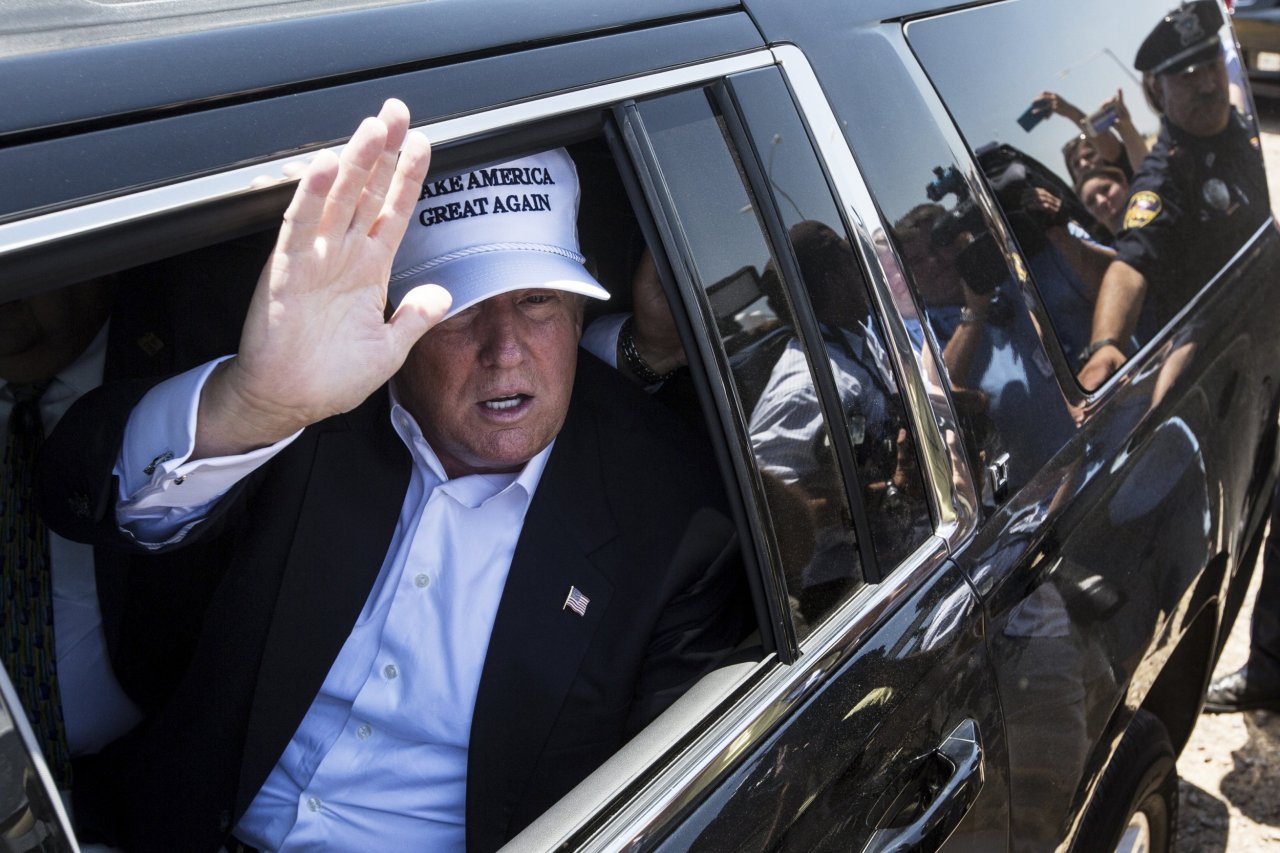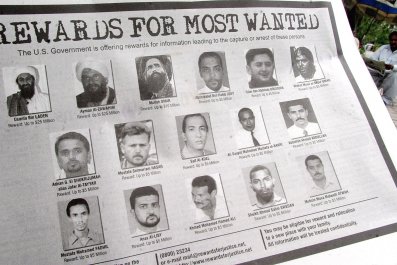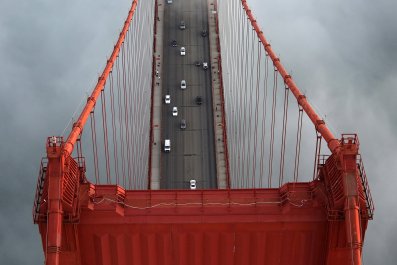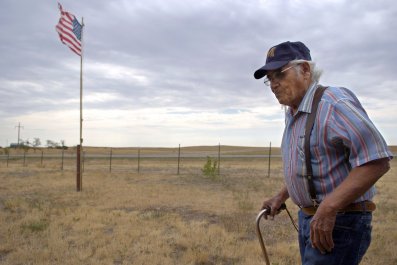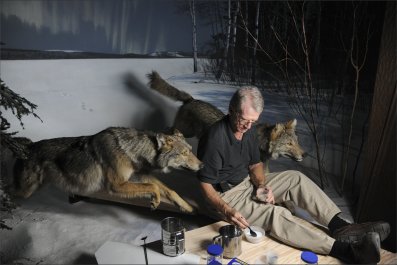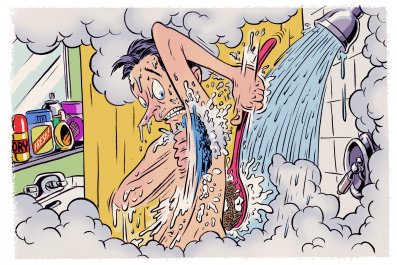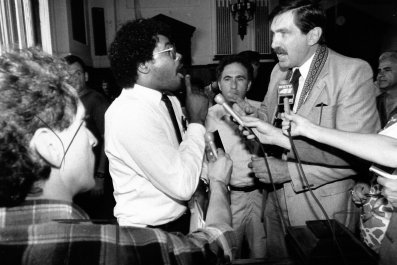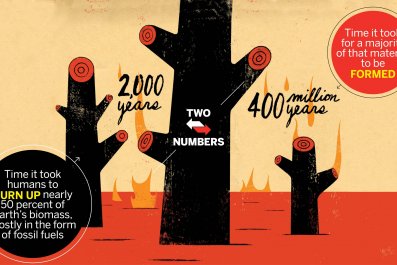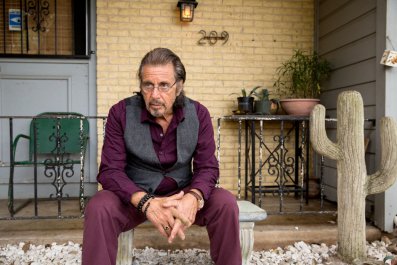Updated | We were finally sitting in Donald Trump's office for our final interview at the end of a monthlong reporting odyssey. A colleague and I had tailed him pretty much everywhere he went. I flew with him down to Atlantic City in his retrofitted French military helicopter, rode with him in his limos and chatted with him in his various offices and at his home. We were reporting a cover profile for Newsweek. It was 1987, and Trump back then was a real estate and casino magnate who was, for the first time in what would become a quadrennial drill over the next 30 years, pretending to contemplate running for president.
Doonesbury, the popular adult cartoon strip, had repeatedly and savagely mocked the idea, but the political class had begun to take notice. One day in his office, he gleefully reeled off the names on his phone messages from media poo-bahs. "Look at this: Fox Butterfield, Noo Yoooik Times; David 'Broduh,' Washington Post. It goes on and on!"
He was loving the attention, but now, with the deadline to get his name on the ballot in New Hampshire looming, he was ready to put an end to the flirtation. Sitting behind his desk, he looked at the two of us and smiled. "You guys want a scoop for your story?" he asked. "I'll give you a scoop: I'm not going to run for president." He paused, letting the not terribly surprising news sink in, then waved a finger at us and added, "but if I did run, I'd win!"
And then all of us—Trump included—cracked up laughing.
'He's a Disaster!'
Nearly three decades later, I'm riding with Trump in an elevator in Trump Tower on Manhattan's Fifth Avenue, heading up to his office just after he's done yet another interview in the lobby with yet another anchor from Fox News. This time—you might have heard—he is running for president, and my editor at Newsweek asked me to fly to New York City from my post in Shanghai to follow him around again to try to figure out why he's running and, more important and interesting than that, why he's in the lead for the Republican nomination.
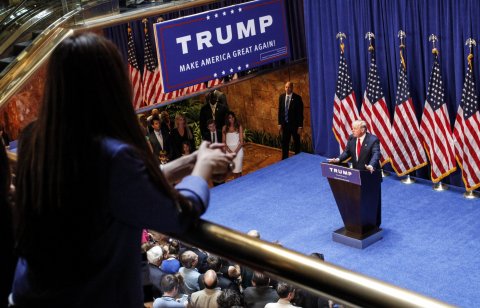
The surreal quality of all that was evident the minute I stepped into the Trump Tower lobby. The media epicenter of this "mad as hell, and we're not going to take it anymore" populist presidential campaign is the Trump Bar, where a gin and tonic costs $11.88 (not bad by Midtown Manhattan standards). The bar sits across from the bank of elevators, and the long line of interviewers—Fox News's Greta Van Susteren one day, Fox News's Eric Bolling the next, with the occasional CNN inquisitor thrown in—set up their cameras and lights there. Periodically, Trump descends from his office, waves at the inevitably startled tourists who happen to be in the lobby, sits down across from whoever it is who's next in line to interview him and does his shtick:
"I'm gonna get back our jobs from the Chinese and the Mexicans and the Japanese and all the other countries that are screwing us!"
"[Fill in the blank]"—Jeb Bush, the Iran nuclear deal, the Mexican border—"is a disaster!"
"John Kerry doesn't know how to negotiate! He's a disaster!"
And on and on until the interview ends, whereupon it's back up to his office, often for yet another interview, this one on the phone, maybe with Trump fan-gal Laura Ingraham or one of the other conservative talk show hosts he regularly feeds nowadays. While he has made the occasional forays to Iowa, New Hampshire and South Carolina in the past few months—and his aides say there will be more of them after the first Republican primary debate on August 6—he is for now dominating the news about the Republican campaign by simply riding up and down the elevator in one of the many buildings named after him, to the bar named after him, and walking past the gift shop stocked with his ties, T-shirts and even the dopey golf hats like the one he wore on his recent trip to the Texas-Mexico border.
Trump has only spent, according to his initial filing, $2 million on the campaign since announcing in mid-June. Over the same time period, the Jeb Bush campaign has shelled out more than $3 million while raising more than $11 million—and has bubkes to show for it. The communications director for the Trump campaign is a 20-something who was moved over from Trump's company; a couple of months ago, she was writing press releases about golf course openings. She has no assistant.
It's true that on the fifth floor of Trump Tower the campaign has cleared out a big space for offices, but for now it's just a vast, empty room. There's an Iowa flag on one wall and on another a sign (evidently Trump channeling his inner Bill Belichick) reading: "Do your job."
But there's no one there—not a single soul. That's in contrast to, say, the Ted Cruz campaign headquarters, where dozens of staffers and volunteers man the phones, frantically try to raise money, bash out direct mail pitches and mull campaign strategies for Iowa and beyond. And still, as Trump tells me, chortling, "The polls are through the roof!" And indeed, just before the first Republican debate, Trump is killing the field, ahead of Bush, Scott Walker, Marco Rubio and all the other GOP wannabes.
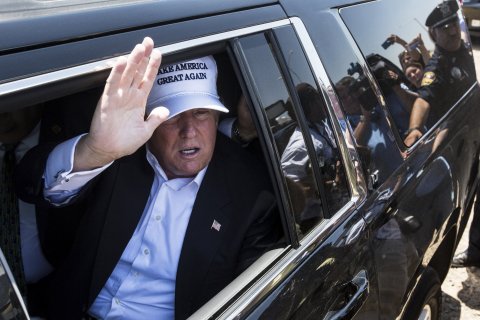
I'm not a political reporter, and until coming to New York in late July, I have watched this unfold with one eye, from afar, believing Trump to be something of an entertaining sideshow. But then I started talking to the several friends I have who are active in GOP politics. Almost all were aghast as they watched the Trump balloon ascend. Many had spoken of their candidates for this cycle with an optimism I hadn't heard in a long while. An "embarrassment of riches," one friend (a Hollywood closet conservative) told me. The field includes experienced, competent governors, current and former, and even a smart, charismatic senator or two. "We're set up," my friend said, "to run a 'future vs. the past' election." The opponent they relish running against is Hillary Clinton, who is, in the GOP's view, an old, lifeless, brutally bad politician.
"But now," he sighs, "it's all Trump, all the time. It's beyond belief."
So it is. To try to understand it, I turned to one of the most fabled political operatives of the last 40 years: the famous (or, depending on your politics, infamous) Roger Stone. As a young man, Stone worked for Richard Nixon when he was in the White House, after being hired by Jeb Magruder, who went to jail for his involvement in the Watergate scandal. Stone was part of the so-called dirty tricks team, which did clever/evil things like make donations to political opponents in the name of nonexistent organizations, such as the "Young Socialist Alliance." Stone, who once described himself as a practitioner of the "black arts" of politics, went on to work for Ronald Reagan when he ran for president, and then for the political consulting firm in Washington that gave George H.W. Bush (then the vice president) Lee Atwater, who became chief campaign strategist when Bush sought the White House in 1988. Atwater, in turn, "gave" the Democratic presidential candidate, Michael Dukakis, an African-American convicted murderer who committed assault, armed robbery and rape on a weekend furlough from prison during Dukakis's tenure as governor of Massachusetts. Atwater promised to "strip the bark off" of Dukakis, and "make Willie Horton his running mate." Bush won 40 states.
Stone is almost as revered and reviled in his field as his now-deceased colleague Atwater was, and he has worked for Trump on and off as a lobbyist and adviser for nearly 20 years. Now he's Trump's political consigliere: at his shoulder constantly, monitoring the Fox News interviews, huddling with him in his office for post-mortems and strategy sessions.
His core tenet as a campaign adviser has always been, "Attack, attack, attack—never defend," and Trump is a more than willing pupil. You don't grow up in the New York real estate business and not know how to fight. His instinct is to fight. Trump tells me that he hasn't initiated the campaign fire this round—"Not once, Bill!"—but he returns it, always with a heavy bit of topspin, in his inimitable and endlessly entertaining style. He's gone after not only Bush but also Lindsey Graham ("Every time I see him on TV, he wants to bomb somebody!"), Rick Perry ("He bought a pair of glasses so he could look smart!") and Walker (the Wisconsin governor who Trump, as of late July, trailed in Iowa). "Wisconsin," he snarled the other day, "is in turmoil!" Hell, these days, Trump even goes after the pundits who have the temerity to criticize him. "George Will," he declared on the radio, "is a dope!"
Stone is aware that I've known Trump for a long time and says, right off the bat after I sit down with him, "Can you believe that he's even bigger now than when you first put him on the cover?"
"Roger," I say, "that's exactly why I'm here—to try to figure out how that happened. I live abroad, and I can't understand why Donald is all anyone in American politics can talk about."
Stone is more than happy to fill in my blanks. He starts with the point everyone makes: A significant percentage of the American public is really angry, and they hate the political class, whom they see as phonies who don't "do what they say they're going to do," as Stone puts it. "I've never seen the voters this sour in my life, and they are responding to someone they see as authentic. Who's a billionaire, says what he thinks, doesn't need the Koch brothers' or anyone else's money, and yet still comes across as a regular guy. Compare that with, say, Mitt Romney.
"And the thing of it is, that's what Donald is. He is a regular guy. He's the opposite of a phony. He is what he is, and he has always been this way."
Stone's right. The blunderbuss style and the braggadocio haven't changed a whit. Thirty years ago, everything Trump touched was "the greatest: the greatest golf course, the greatest hotel, the greatest casino. His book, The Art of the Deal, is, Trump told me, "one of the greatest business books of all time." He said all of that stuff back then, and he still says it today. And he believes it.
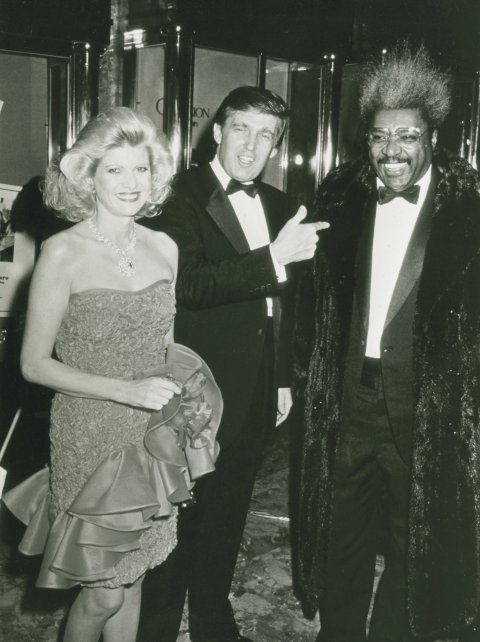
Trump's style is not calculated, but he understands—and always has—that his brand is all about the bombast. One of the things I learned while reporting that cover story so long ago—and in dealing with him off and on over the years since then—is that a lot of what he says and does, he does with a subtle wink. It's as if to say, "Look, I know that maybe you don't think that The Art of the Deal is one of the greatest business books ever written, or that this golf course I own or that hotel I just put my name on is the best in the world. But I say it anyway, because that's just who I am, and it's how I talk. And why should I change? Is it not working?"
This is why all three of us laughed that day in his office when he said, "But if I did run, I'd win!" There was a funny charm in that. It would have been inauthentic had he not said it. It's part of the reason I like Donald Trump. Always have.
Another reason I like him is that he is, as Stone says, a billionaire with everyman tastes. He's not Romney—"Eddie Haskell with a Cayman Islands bank account," my Hollywood GOP friend called him. I remember Trump was once invited to a fancy charity gala at the Metropolitan Museum of Art with all the Upper East Side elite—private equity king Henry Kravis and his then-wife Carolyne Roehm; John Gutfreund, then the CEO of Salomon Brothers, etc., etc. Trump hated it. He left after about 10 minutes, went back to his Trump Tower apartment, ate popcorn and watched the Giants on Monday Night Football while the swells sipped champagne.
He has other traits that aren't easy to dismiss, even if they are easy to mock. He is always going on about how he's a tough negotiator, that he'll get better "deals" for America (after all, he wrote The Art of the Deal). Stone, channeling his candidate, says for Trump, negotiating with the Chinese "would be a day at the beach."
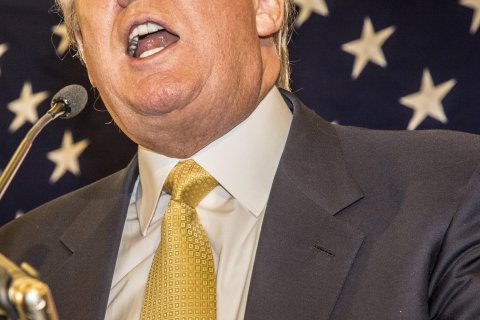
Campaign hyperbole? Sure. But Trump and his people aren't lying when they say the businesses from which he emerged—New York real estate, Atlantic City casinos—have shaped him. They are tough businesses; Trump and his people were (and are) hard-asses. When I trailed after him for a month, I witnessed several obscenity-laced screaming matches between Trump, his people and the folks on the other side of deals. I watched in Atlantic City as one of his executives went at the lawyer for the casino workers' union, the two of them swearing nonstop for more than 30 minutes. I also heard Trump get into a shouting match on a conference call with investment banks who had been burned investing in junk bonds issued by Trump companies. One friend of Trump's described him back then as a "shin-kicking, ball-busting businessman. This is not a guy who retires to the club for cocktails at 6 o'clock." So when Trump says he's a much better negotiator than Kerry will ever be, he's probably right. If my money were at stake, I'd take Trump every time over the windsurfing secretary of state.
The Apprentice's Sorcerer
So I'm on the record saying that I like Trump personally. But that doesn't mean I came to New York City in late July thinking he had any shot at getting the Republican nomination, or even should have a shot. I knew Trump didn't really take politics all that seriously in the past. I also knew that Peak Trump was happening well before anyone was actually voting, and that we are still in the cable news–driven political silly season. I believed his standing in the polls—which only strengthened after his beyond the pale remarks about Senator John McCain not being a war hero—was simply a function of name recognition. Voters will eventually come to know the credible candidates, I figured as I flew in from Shanghai, and Trump will fade.
But after spending some time with him, and talking to Stone and other Trump associates, I'm no longer so sure. For one thing, Stone tells me—and political reporters I respect, like Robert Costa of The Washington Post, have reported—that the Trump campaign has hired very credible operatives in the key early states. That suggests this is not just a lark, a clever way for Donald Trump to extend his brand even further.
And there's more. Listen, again, to Stone, and what I'll call his The Apprentice theory of politics. For 15 seasons, The Apprentice was a popular TV show. "Millions of people watched it," Stone says, and what did all those people see on The Apprentice? "They saw a guy in a blue suit in a red tie, a guy who looks presidential, sitting in a high-backed chair. They see a guy in control. A guy making decisions. He appears thoughtful. He mulls things for a few seconds" before deciding whether he should tell someone, "You're fired!"
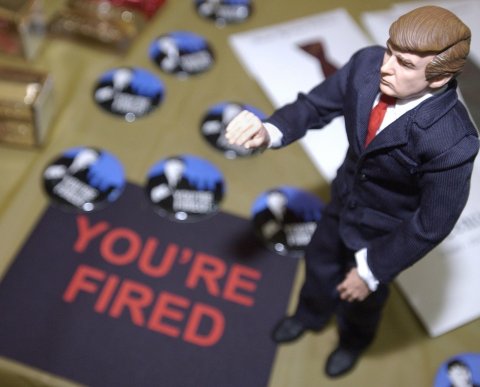
The Apprentice, Stone says, "transformed Donald's image for good."
I'm reeling a bit as he lays this out. "Wait a second," I say. "Because he's shown mulling things 'for a few seconds,' a lot of people think he can be president?"
"Yes."
At this point, I'm pushing down thoughts of seeking Chinese citizenship. "But Roger, that's a television show; it's not real. And the critique of Donald is that he doesn't know enough stuff to be president. He says things that are just wrong.'' You can, to take one example that I'm intimately familiar with, say that the Chinese currency is undervalued against the dollar. That it should be stronger. But the Chinese have not 'devalued' their currency, as Trump has said over and over again on television. The value of the renminbi recently was more than 25 percent higher against the dollar than it was a decade ago.
Of course, as if on cue, on Tuesday, August 11, days after this story went to print, Beijing devalued the yuan for the first time in a quarter century, immediately rattling global markets. But the fact remains that he had been wrong all that time.
It is also a fact that Trump's recent description of Walker's record in Wisconsin was incorrect in just about every way. Wasn't Graham right when he said that on policy Trump is "a mile wide and an inch deep?" That not only does he not know enough, but worse, he doesn't know what he doesn't know?
Stone sighs. I clearly don't get it. "Look, it's a big-picture thing. He knows what he wants to do. He knows how to delegate. He knows how to lead."
He goes on to say that he thinks voters like the fact that, in part to honor a commitment to his son Eric, who helps manage the family's golf business, Donald flew off to Scotland for a couple of days at the end of July to be at the Women's British Open, which was being held at a course Trump owns. This, he says mockingly, at a time when all the other candidates were "holed up in a room trying to master the arcana of budget policy."
"OK," I say, "fair enough."
But then comes this: "You know," Stone says, "I worked for a guy they used to say the same thing about. That he didn't know enough.''
Oh no, I'm thinking. Please don't do it, Roger! Please don't compare Trump with…
"That he was just an actor."
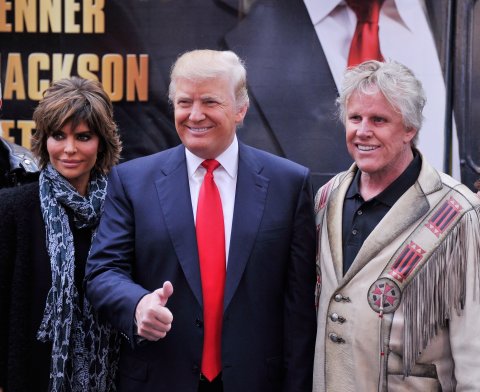
Oh God.
"And he turned out to be the most consequential president of our lifetime."
Yes, folks, Donald Trump is the new Ronald Reagan. You read it here first.
Just Tell Me Why
The other thing that I wondered about before seeing Donald Trump again was why. Why in the world at age 69 and with a few billion dollars in the bank would you seek to be president? Does Trump really want the job? Hasn't he seen how much the last two men in the Oval Office, both much younger men than he, aged over two terms? The job is a bitch. And a long campaign will inevitably unearth a lot of stuff Trump can't possibly want to revisit: the bankruptcies, the many lawsuits. The fact that—precisely because New York real estate, not to mention the casino business, is vicious—he has made a lot of enemies.
He's not going to win the nomination just doing live interviews with Sean Hannity and Bill O'Reilly from the lobby of his building.
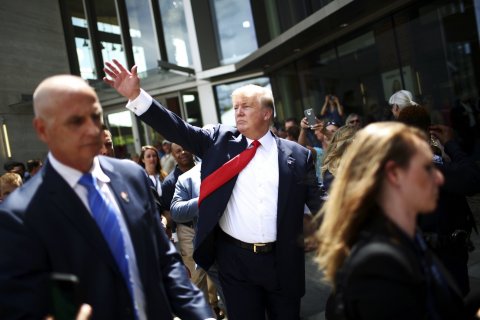
When I ask Trump why, he says simply that the country "is going down the tubes, and I'm sick about it. And I'm sick of these politicians. So why not? Why not run?"
He sees that I'm bit puzzled, skeptical maybe, so he says, "What do you think, Bill? Do you think I can win?"
"Honestly, Donald," I say, "on the plane over here from China I would have told you no. But what the hell do I know? I live in Shanghai."
He laughs, and then says, "Well, we're going to find out, aren't we?"
This piece has been updated to include news that China's central bank recently made moves to devalue its currency.


